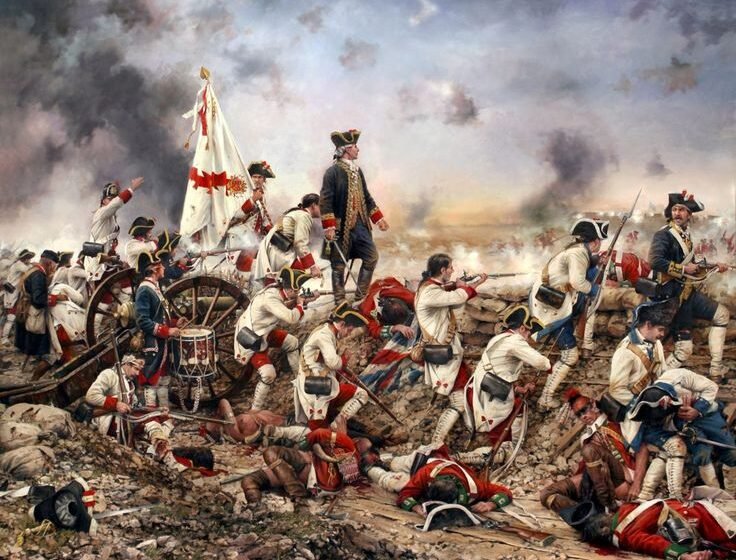The American Revolution: The Birth of a Nation and a Global Shift in Governance

The American Revolution (1765–1783) remains one of the most transformative events in modern history, marking the emergence of a new nation and establishing principles of liberty and democracy that continue to resonate globally. What began as growing dissatisfaction with British colonial policies evolved into a monumental struggle for independence. The Revolution not only created the United States of America but also inspired movements worldwide, redefining governance, human rights, and the relationship between rulers and the ruled.
Background and Causes
The American Revolution was the result of a complex interplay of economic, political, and intellectual forces. Over time, these pressures fostered an atmosphere of discontent and resistance in Britain’s North American colonies, making rebellion inevitable.
Economically, the colonies were central to Britain’s mercantilist system, which aimed to enrich the mother country at the colonies’ expense. Colonial trade was tightly controlled, with exports of raw materials directed exclusively to Britain while imports of British goods were inflated in price. This restrictive system stifled colonial economic aspirations, creating widespread resentment. The economic burden deepened after Britain’s costly victory in the French and Indian War (1754–1763). To recover from wartime debts, Parliament imposed taxes on the colonies, such as the Stamp Act of 1765 and the Townshend Acts of 1767, without granting them representation in decision-making bodies. This lack of representation sparked outrage, leading to the rallying cry, “No taxation without representation.”
Politically, the colonies’ traditions of self-governance were under threat. Local assemblies, which had long managed taxation and regional policies, were undermined by British attempts to centralise power. The Proclamation of 1763, which forbade settlement west of the Appalachian Mountains, angered colonists eager to expand into new territories. Simultaneously, the Quartering Act required colonists to house British soldiers, intensifying fears that Britain sought to impose authoritarian rule.
This atmosphere of economic exploitation and political suppression was deeply influenced by the Enlightenment, a period of intellectual awakening that championed reason, individual rights, and the idea that governments derive authority from the consent of the governed. Thinkers like John Locke argued that citizens had a right to resist any government that violated their natural rights to life, liberty, and property. These ideas resonated deeply with colonists, providing both justification and inspiration for rebellion.
The Road to Revolution
As tensions mounted, a series of confrontations and legislative actions transformed colonial discontent into organised resistance. Key events marked the transition from protest to revolution.
The Boston Massacre of 1770 epitomised the growing hostility between colonists and British authorities. When British soldiers fired into a protesting crowd, killing five, colonial leaders seized on the incident as evidence of British tyranny, rallying public opinion against imperial rule. This animosity deepened in 1773 with the Boston Tea Party, when colonists, protesting the Tea Act, destroyed a shipment of British tea by dumping it into Boston Harbour. Britain’s harsh response—the Intolerable Acts—sought to punish Massachusetts but instead unified the colonies in opposition.
The First Continental Congress convened in 1774 to coordinate resistance. Delegates from twelve colonies met to assert their rights and challenge British policies, though reconciliation remained a possibility. Nevertheless, preparations for conflict intensified, with militias forming and boycotts of British goods becoming widespread. By this point, the colonies were on the brink of war.
The War for Independence (1775–1783)
The American Revolution escalated into open conflict in 1775, beginning with the battles of Lexington and Concord. These clashes, often referred to as the “shot heard ’round the world,” marked the start of a war that would last eight years and reshape the global order.
The early stages of the war were marked by uncertainty and hardship. At the Second Continental Congress, George Washington was appointed commander-in-chief of the Continental Army, uniting the colonies under a single military leader. Despite initial setbacks, the revolutionaries achieved significant victories that shifted the course of the war.
The Declaration of Independence, adopted on July 4, 1776, was a defining moment. Written primarily by Thomas Jefferson, it articulated the colonies’ separation from Britain and expressed ideals of equality, liberty, and self-determination. These principles not only motivated the colonists but also resonated with audiences worldwide, inspiring future movements for independence and reform.
Military success came with difficulty but was marked by pivotal events. The Battle of Saratoga in 1777 proved to be a turning point, persuading France to ally with the colonies. French military and financial support provided the revolutionaries with a much-needed advantage. Meanwhile, the winter at Valley Forge tested the resolve of the Continental Army. Despite harsh conditions and scarce resources, Washington’s leadership and the training provided by European officers like Baron von Steuben transformed the army into a disciplined fighting force.
The war culminated in the Siege of Yorktown in 1781, where American and French forces trapped British General Cornwallis, forcing his surrender. This decisive victory effectively ended major combat operations and led to the negotiation of peace.
The Treaty of Paris and Its Consequences
The Treaty of Paris, signed in 1783, officially ended the American Revolution. Britain recognised the independence of the United States and ceded territory east of the Mississippi River to the new nation. This agreement established the United States as a sovereign state and secured its place on the global stage.
While the Revolution achieved independence, its promises of liberty and equality were not universally realized. Enslaved people remained in bondage, women were excluded from political participation, and Indigenous peoples faced further displacement. These contradictions underscored the limitations of the revolutionary ideals, even as they inspired future struggles for justice.
Legacy and Global Impact
The American Revolution’s influence extended far beyond its borders. It inspired the French Revolution, which embraced similar ideals of liberty and democracy, and the Haitian Revolution, where enslaved Africans overthrew colonial rule to establish the first Black republic. The Revolution also shaped independence movements in Latin America, as leaders like Simón Bolívar looked to the American example for guidance.
In redefining governance, the Revolution marked a shift away from monarchies and toward systems rooted in popular sovereignty. Its emphasis on human rights and constitutional governance laid the groundwork for modern democracies, ensuring its place as a transformative event in global history.
Conclusion
The American Revolution was far more than a struggle for independence. It was a profound political and ideological upheaval that reshaped the principles of governance, inspired movements worldwide, and laid the foundation for modern ideas of liberty and self-determination. While its promises were imperfectly realised, its legacy endures as a testament to the power of collective action against oppression and the enduring quest for freedom.


